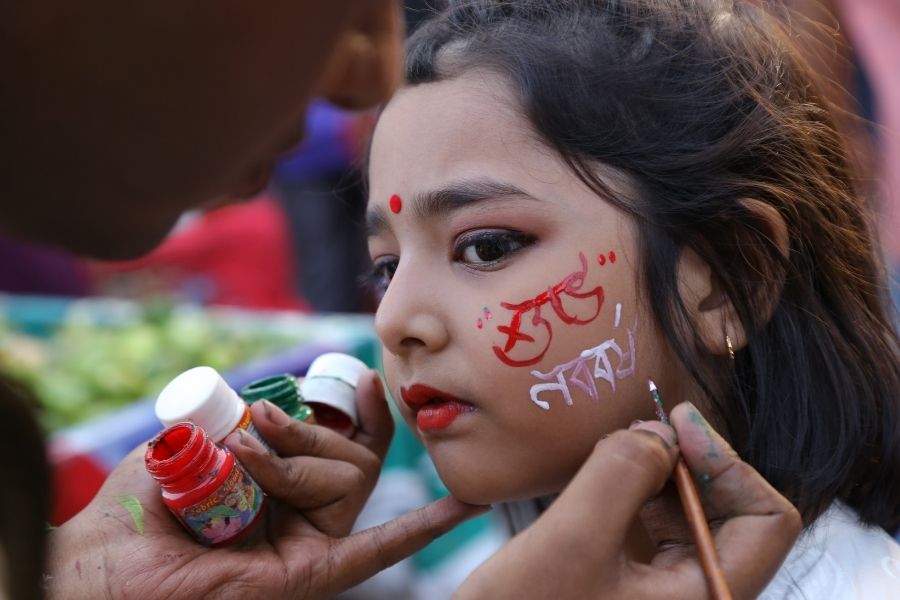Poila Baisakh, or the Bengali New Year, marks the first day of the Bengali calendar, ushering in a fresh start filled with cultural festivities, delectable food, and age-old customs. But, how does this festival resonate with the young generation in a time shaped by smartphones, social media, and rapid change? What does Poila Baisakh mean to Generation Alpha — those born in the 2010s and later? Are they keeping traditions alive, reinventing them, or finding new ways to celebrate? My Kolkata explores…
Family time, ‘shorshe ilish’, and more…
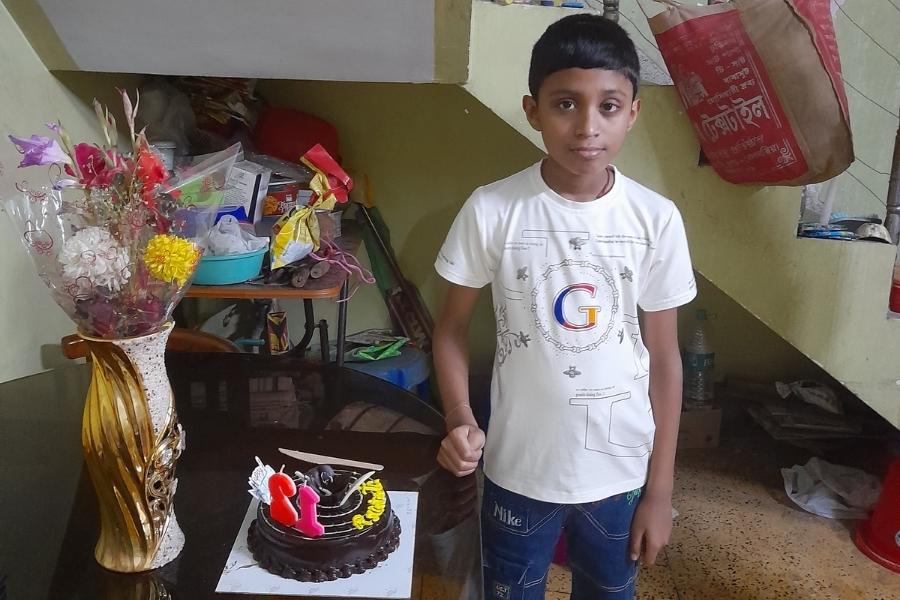
Pranata Sarkar
Barir choto chele, Pranata Sarkar, grew up watching his family of four and an extended family of almost 50, celebrating every festival with gusto. While January 1 is about hitting the city eateries, Poila Baisakh means embracing traditions and Bengali culture with equal enthusiasm.
“To me, it’s a time for fresh beginnings, positivity, and reconnecting with family traditions. It’s not just a calendar event — it’s a celebration of culture and hope,” shared Pranata, reflecting on his understanding of Nabo Barsho.
On Bengali New Year, he starts the day visiting a temple or praying at home for prosperity and happiness. “The rest of the day is spent with family, enjoying traditional meals. We eat dishes like shorshe ilish, luchi with alu dum, and sweets like rosogolla and mishti doi,” he shared further, about the delicious delights that add to the festivities of the day.
As far as family customs and practices are concerned, he helps his family clean the house ahead of Poila Baisakh — something that is done in most Bengali households during this time of the year. A prelude to Poila Baisakh, of course, is a dose of retail therapy. “This year, I bought a new kurta and some sweets to share with friends and family,” he signed off.
— Pranata Sarkar, 13
A harvest festival, grandmother’s mutton curry, and matching outfits with mum
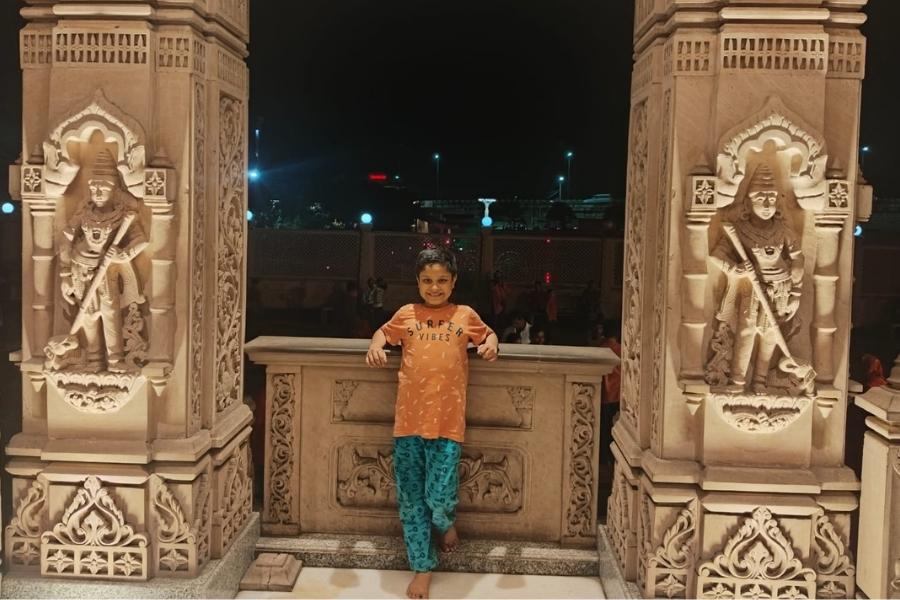
Ahenjeet Ganguly
Growing up with his grandparents, Ahenjeet Ganguly often heard stories from his grandfather about Poila Baisakh being celebrated as a harvest festival during his childhood. Now, living in the heart of Kolkata with his parents and grandparents, Ahenjeet doesn’t celebrate Poila Baisakh in quite the same way. For him, the Bengali New Year is more about spending time with family and partaking in a few cherished rituals.
“We have a delicious lunch together. My favourite is the mutton curry made by my grandmother,” he shared. After lunch, Ahenjeet joins his family for Lakshmi and Ganesh puja, wearing new clothes gifted by his parents. He also visits a relative’s shop for the traditional Haal Khata ceremony.
“My mother bought a blue shirt for me and a matching sari for herself. I’m really excited to wear our new clothes that day,” he said with a smile.
— Ahenjeet Ganguly, 9
Fusion cuisine, books and IPL with family
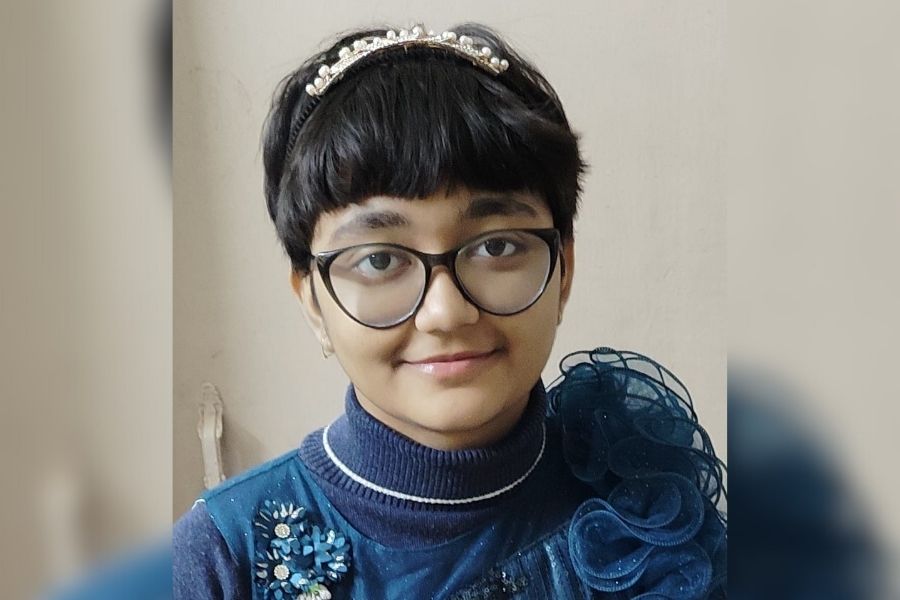
Sumedha Chatterjee
For 13-year-old Sumedha Chatterjee from north Kolkata, Poila Baisakh is a celebration she looks forward to more than the English New Year — thanks to her mother’s delectable fusion menu of pulao, chilli chicken and fish fry.
“Right after waking up, I send ‘Shubho Noboborsho’ messages to all my friends and cousins,” she said. “Then we go to our relatives’ homes with gifts — new clothes and sweets. In return, I usually receive books, toys, and dresses.”
While her family doesn’t follow too many rituals, eating fish for lunch is a must. “In the evening, we all watch the IPL together — my uncle and aunt join us too. We’re all die-hard cricket fans,” she added.
Sumedha is also excited about her new festive outfit. “This year, my mother bought me a yellow kurti and golden earrings. I picked out bangles to go with it — I can’t wait to wear them,” she concluded.
— Sumedha Chatterjee, 13
Cricket shoes, a visit to Lake Kali Bari, and a movie night with parents
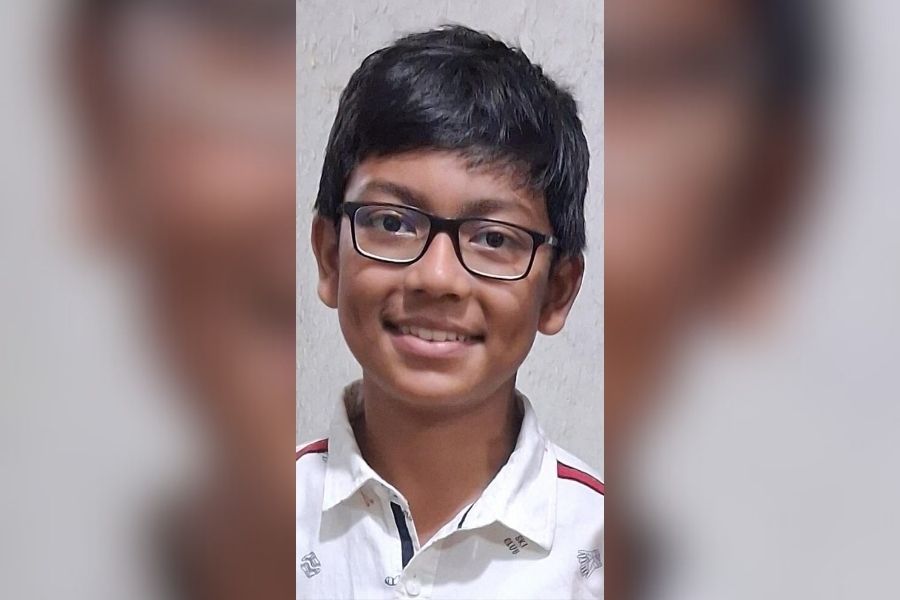
Aadrito Ghosh
Twelve-year-old Aadrito Ghosh lives in an apartment in south Kolkata with his parents. Between school and tuitions, his days are usually packed, and with both his parents working, quality time together is rare. That’s why Poila Baisakh is special — it’s one of the few days the family spends time entirely with one another.
“It’s a very special day. My parents and I visit Lake Kali Bari for puja. After returning home, we have a delicious lunch — pulao, bhetki bhapa, dum alu,” said Aadrito.
The rest of the day is reserved for family time. They chat, watch a movie together and share snacks. Poila Baisakh also brings presents. “This year, I bought a shirt and a few jerseys. My parents also gifted me a new pair of cricket shoes,” he added with a wide grin.
“Poila Baisakh is joyful because it means new beginnings, lots of love and lots of new things,” he concluded.
— Aadrito Ghosh, 12
A day of renewal, ‘luchi-torkari’ and Bengali music
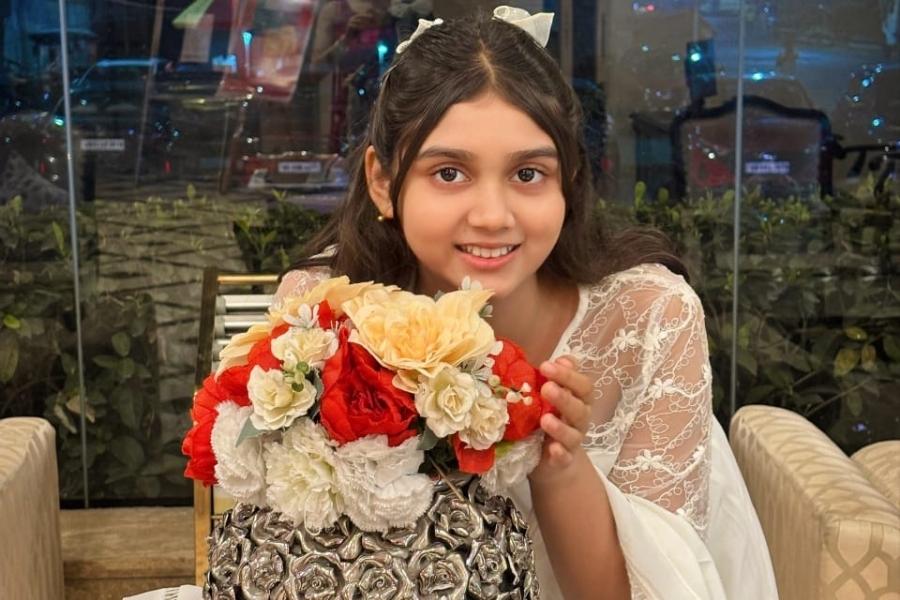
Tanisha Sarkar
Eleven-year-old Tanisha Sarkar is an avid reader who enjoys learning about the traditions behind festivals. “I’ve read that Poila Baisakh bids farewell to the old year and welcomes the new. It’s a time of renewal — to start fresh and aim to be better,” she said.
Tanisha lives in a joint family, which makes celebrations all the more inclusive and festive. “We wake up early, touch the feet of our elders and wear new clothes. Our day begins with a traditional breakfast of luchi and torkari. Lunch is usually rice and mutton curry, followed by mishti doi and other sweets,” she shared.
In the evening, the family gathers to listen to Bengali songs, enjoying the music, toasting to peace and togetherness.
— Tanisha Sarkar, 11
No school, new clothes, and fun with cousins
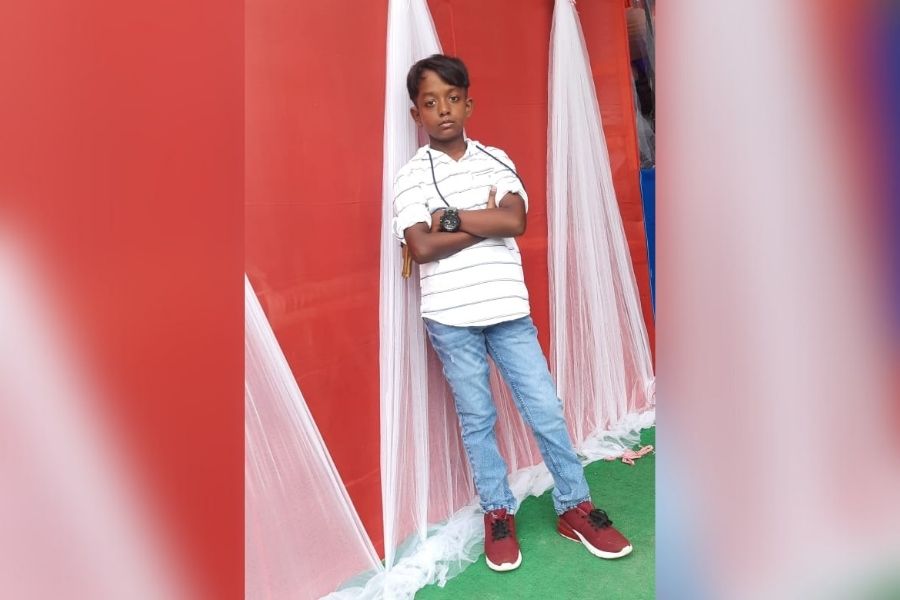
Debtullya Das
For 13-year-old Debtullya Das, Poila Baisakh marks the unofficial start of summer. “There’s no school that day, so my friends and cousins come over. My mum cooks a big lunch, and we have loads of fun,” he said.
The day is filled with games, food and photo sessions. “We wear new clothes, and my mother uploads all the pictures on Instagram and WhatsApp,” he added.
Buying new clothes is a tradition in Debtullya’s family. “Every year, we get clothes for everyone, including my grandparents. This time, I bought a matching T-shirt for myself and my dadu,” he shared proudly.
— Debtullya Das, 13
Biryani, a long drive, and a mini Durga Puja
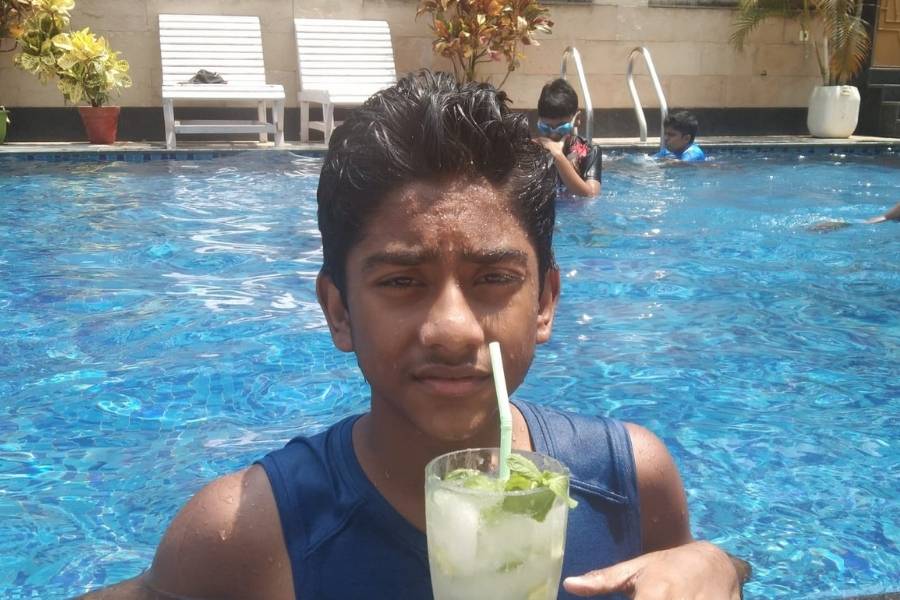
Abhronil Sarkar
Abhronil Sarkar may not know the historical details of Poila Baisakh, but he certainly looks forward to the day. “I get to wear my new kurta and pyjamas, and we go for a drive — sometimes my grandparents join in too,” he said.
Abhronil is fond of Bengali cuisine, but enjoys biryani and chicken kasha on Poila Baisakh. His family does not follow specific rituals. “The goal is to have fun in whatever way we can because it is a holiday,” he shared.
“This year, I bought a kurta, two T-shirts and a pair of shoes. It is like a mini Durga Puja for me,” he joked.
— Abhronil Sarkar, 13
A regular day, prayers, home sweet home
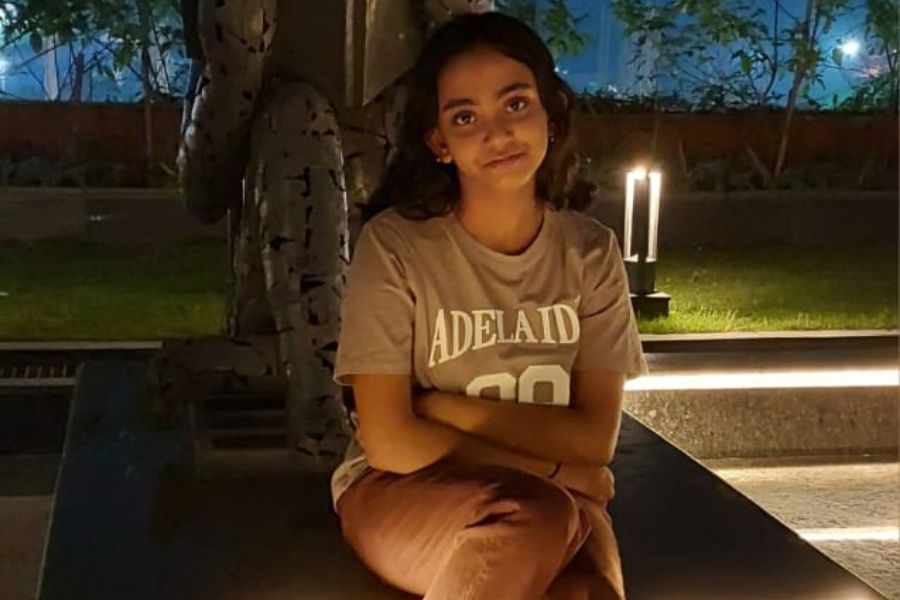
Teeasha Khastgir
For 13-year-old Teeasha Khastgir, Poila Baisakh feels like just another day — except that it's a holiday spent at home with her parents.
“Poila Baisakh is the Bengali New Year on the Hindu calendar and a holiday in Kolkata. But for us, it’s mostly a regular day. My family and I don’t really celebrate or do anything special,” said Teeasha, who usually spends the day relaxing at home.
Her family eats whatever is typically cooked that day. “There’s no festive menu — just our usual meals,” she shared.
The only tradition they follow is her grandmother offering prayers to Goddess Lakshmi and Lord Ganesha. “That’s the one ritual we observe,” Teeasha added.
— Teeasha Khastgir, 13
